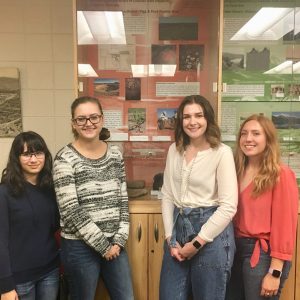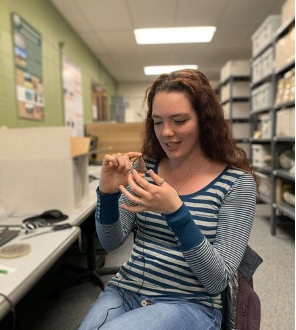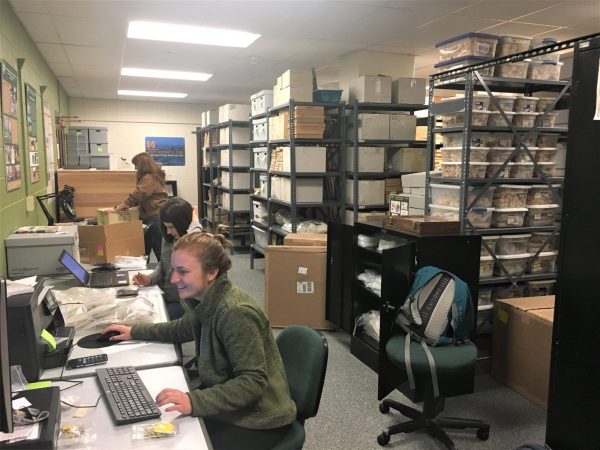Museum and Cultural Heritage Studies Undergraduate Certificate
The undergraduate Museum and Cultural Heritage Studies Certificate provides students with a broad background in museum and cultural heritage studies and a solid foundation for pursuing advanced education and careers in the fields of Museum Studies or Cultural Heritage Studies. The certificate and its curriculum prepare students for entry-level careers in museums, cultural heritage sites, national parks and heritage areas, and similar venues that promote public outreach and education.
Core courses introduce students to the history of museums, cultural heritage management, administration, curation, artifact handling, collections management, interpretation, exhibitions, ethics, and working with indigenous communities.

Undergraduate Certificate Offers Education through Curation
The undergraduate Museum and Cultural Heritage Studies Certificate program, launched Fall 2020, prepares students for jobs and careers in museums and education centers and at cultural heritage areas, including national parks and historic sites. The certificate is the first undergraduate certificate of its kind in the state of Colorado.
CSU Archaeological Repository
The Archaeological Repository of Colorado State University is a curation facility that manages the archaeological artifacts and associated paperwork and images of the Colorado State University’s Department of Anthropology and other archaeological collections from public and private lands in Colorado obtained in the course of cultural resource management (CRM) and field schools. Many of the archaeological collections held in the repository are from Northern Colorado and represent over 13,000 years of cultural history in the region. The collections are available to descendant communities, researchers, university students, and museums interested in Colorado prehistory and early history for visits, research, and artifact loans.

“Working in the Archaeology Repository has been valuable beyond words to my development and growth as a person, a student and as an archaeologist.” – Kit Kelly
"During my time as an assistant at the Repository at CSU, I gained a deeper appreciation and understanding for handling artifacts and the process taken by researchers and museum curators when cataloging and classifying objects." – Nick Gage
“By working in the repository, I have been exposed to essential skills when it comes to the science behind museums.” – Karlie Dorland
“This experience helped me in pursuing my future goals, because now I have a greater understanding of what I am able to do with my degree, and ways in which I can further my degree beyond a BA.” – Elaine van Jaarsveld
 “When I initially set foot in the repository, I was amazed by the extensive collections present. I had no idea that CSU had so many amazing artifacts. Being able to open boxes that hadn’t been looked in for decades was incredibly exciting.” – Madeline Kunkel
“When I initially set foot in the repository, I was amazed by the extensive collections present. I had no idea that CSU had so many amazing artifacts. Being able to open boxes that hadn’t been looked in for decades was incredibly exciting.” – Madeline Kunkel
“The practicum has made museum work more tangible for me. I believe that I could make a positive change in museums and can conceptualize what I would want to do while working for a museum.” – Alaura Hopper
FOR MORE INFORMATION, CONTACT:
Professor Jason LaBelle
Director, Center for Mountain and Plains Archaeology
Curator, Archaeological Repository of Colorado State University (AR-CSU)




